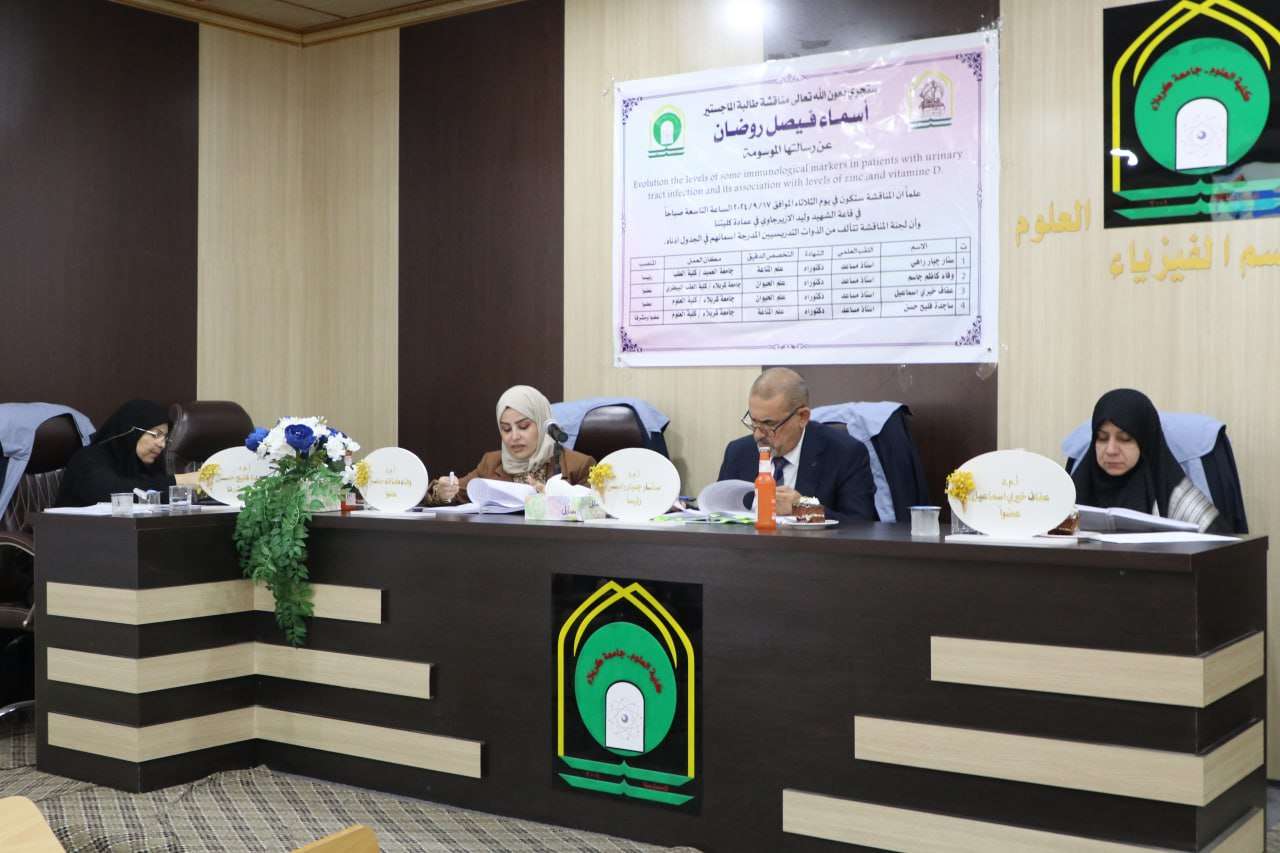A master’s thesis from the College of Science at the University of Karbala evaluated the levels of certain immune factors in patients with urinary tract infections (UTIs) and their relationship to zinc and vitamin D levels.
The study, presented by student Asmaa Faisal Rudhan from the Department of Life Sciences, aimed to assess the levels of IgG, IgM, TLR2, and TLR4 in the serum of UTI patients and a control group. It also sought to measure serum zinc and vitamin D levels and to determine the relationship between these biomarkers in such cases.
The study focused on the immune aspects of the infection by investigating some innate and adaptive immune factors and their relationship to zinc and vitamin D.
The study recommended further investigation into other immune factors associated with urinary tract infections, such as other types of TLRs, and to study the same immune factors in upper urinary tract infections, such as kidney infections. It also called for a more detailed study of the immune importance in UTI infections, particularly against highly virulent bacteria such as *Escherichia coli*.
Additionally, the study recommended a more in-depth investigation into the role of zinc and vitamin D in combating other immune-related diseases. The association between D3, zinc, and UTIs still requires extensive research, as their role in infections needs further exploration. It also suggested investigating cell death mechanisms (e.g., apoptosis), especially concerning the relationship with TLR2 and TLR4.































































